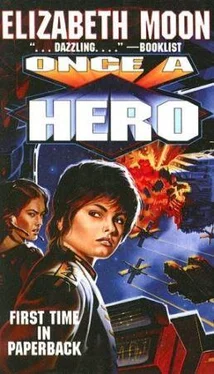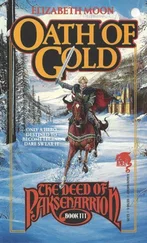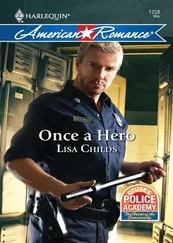Elizabeth Moon - Once a Hero
Здесь есть возможность читать онлайн «Elizabeth Moon - Once a Hero» весь текст электронной книги совершенно бесплатно (целиком полную версию без сокращений). В некоторых случаях можно слушать аудио, скачать через торрент в формате fb2 и присутствует краткое содержание. Жанр: Космическая фантастика, Боевая фантастика, на английском языке. Описание произведения, (предисловие) а так же отзывы посетителей доступны на портале библиотеки ЛибКат.
- Название:Once a Hero
- Автор:
- Жанр:
- Год:неизвестен
- ISBN:нет данных
- Рейтинг книги:3 / 5. Голосов: 1
-
Избранное:Добавить в избранное
- Отзывы:
-
Ваша оценка:
- 60
- 1
- 2
- 3
- 4
- 5
Once a Hero: краткое содержание, описание и аннотация
Предлагаем к чтению аннотацию, описание, краткое содержание или предисловие (зависит от того, что написал сам автор книги «Once a Hero»). Если вы не нашли необходимую информацию о книге — напишите в комментариях, мы постараемся отыскать её.
Once a Hero — читать онлайн бесплатно полную книгу (весь текст) целиком
Ниже представлен текст книги, разбитый по страницам. Система сохранения места последней прочитанной страницы, позволяет с удобством читать онлайн бесплатно книгу «Once a Hero», без необходимости каждый раз заново искать на чём Вы остановились. Поставьте закладку, и сможете в любой момент перейти на страницу, на которой закончили чтение.
Интервал:
Закладка:
“Good for him,” Annie said. “That’s what I’d call a normal reaction. Now . . . since you’ve told it once, do you think you could tell me?”
Esmay took a breath and plunged into the story again. It was no easier . . . but no harder, even though Annie was a stranger. When she faltered, Annie asked just enough to get her started again. Finally—she was sure it had taken hours—she got to the end. “I thought . . . thought maybe I’d gone crazy. From the fever, or something.”
Annie shook her head. “That’s one thing you don’t have to worry about, Esmay. By any definition of sanity, you’re well onto the sane side . . . you always were. You survived enormous trauma, physical and emotional, and although it damaged your development, it didn’t stop it. Your defenses were normal ones; it was your family’s response which, if it manifested in an individual, would be called insane—or at least unsound.”
“But they weren’t crazy . . . they weren’t the ones waking up everyone in the house at night screaming. . . .” It was absurd to think of her family as crazy, those normal people walking around in everyday clothes, carrying out normal lives.
“Esmay, nightmares are not a symptom of insanity. Something awful happened to you; you had nightmares about it: a normal reaction. But your family tried to pretend it hadn’t happened, and that your normal nightmares were the real problem. That’s a failure to face reality—and being out of touch with reality is a symptom of mental illness. It’s just as serious when a family or other group does it, as when one person does it.”
“But . . .”
“It’s hard to connect your normal family—living their everyday lives—with your mental image of insanity? I’m not surprised. We’ll talk more about this, and your other problems, but let me reassure you: you are sane, and the symptoms you’ve had are treatable. We’ll need to spend some time at it here, and you’ll have some assignments to complete on your own. They should take about two hours, between our sessions, which I’m setting up twice a decad for now, every five days. Now: do you have any questions about the process?”
Esmay was sure she had questions, but she couldn’t think of them. She had an overwhelming desire to lie down and sleep; she felt as tired as if she’d been working out for two hours.
“You will probably have some somatic symptoms for the first several sessions,” Annie went on. “You’ll be tired, perhaps achy. You may be tempted to skip meals or binge on desserts . . . try to eat regularly and moderately. Allow extra time for sleep, if you can.”
Chapter Twenty-One
All very well to say that, but what good was time for sleep if she couldn’t sleep? Esmay acquired an intimate knowledge of every flaw in the surface of bulkhead and overhead, every object in her quarters. When she shut her eyes, she felt wider awake than before, heart racing. At meals, she dutifully forced down one mouthful after another, mimicking whoever sat fourth down on the left, taking a bite when he or she did. No one seemed to notice. She felt suspended in a hollow sphere; nothing seemed quite within reach.
To her surprise and relief, no one seemed to expect her to do more than routine work, even though the ship was shorthanded. Pitak handed her endless lists of inventory to check, progress notes on Wraith ’s repair to enter into the database. She was vaguely aware that this was routine clerical work, more suited to a pivot or corporal, but she felt no rancor. The simple tasks engaged her fully, kept her busy. Whatever burst of energy had sent her across the ship, into the enemy’s craft, into battle, had vanished. Someone else could figure out how to get Koskiusko back to Familias space, back to the rest of the Fleet deployment. Someone else could worry about Wraith ’s repairs, about internal damage, even about casualties. She couldn’t quite manage to care.
In the next session, Esmay found herself defending her family again. “They didn’t understand,” she said.
“You had the nightmares. You screamed so much, you said, that they banished you to a distant part of the house—”
“It wasn’t banishment—”
“For a child to sleep alone that far from anyone else? I call that banishment. And you had changed in ways that most adults would recognize as a response to stress. Hadn’t you?”
Seb Coron had said she loved to ride, until after that. She had been outgoing, ebullient, eager, adventurous . . . but all children grew out of the easy joy of early childhood. She tried to say that to Annie, who insisted on reflecting it back to her in other interpretations. “Whenever a child’s behavior changes suddenly, there’s a reason. Gradual change is not so diagnostic—exposure to new experiences can mean new enthusiasms replace the old. But sudden change means something, and a child’s family is supposed to notice, and look for the cause. In your case, of course, they already had a cause they knew about.”
“But it wasn’t connected . . . they said I’d just gotten lazy. . . .”
“Children don’t ‘just get lazy.’ That’s an adult’s quick label for some behavior they don’t like. You had liked riding before . . . then you quit, and forgot you’d ever enjoyed it. And you think that’s not related to a sexual assault?”
“I . . . suppose it could be.” Her whole body twitched, like a horse’s skin trying to flick off a biting fly.
“Do you remember whether the assault was in a building or outside?”
“All the buildings were destroyed . . . at least partly. I’d found a corner . . . taller than I was, but only a little . . . there was . . . was straw, and I’d crawled into it . . .”
“What did it smell like?”
Her breath caught again . . . a whiff of that smell, not the smoke but the other smell, blew across her mind. “Barn,” she said, so softly she could barely hear herself. “It was a barn. It smelled like home. . . .”
“That’s probably why you were in it, your nose leading you to something that didn’t scare you silly. So there, in a place you had thought safe—remember, smells go straight in to the emotional center of the brain—you were assaulted in the most terrifying way by someone whose uniform you had previously associated with safety. Is it any wonder you hated cleaning stalls later?”
Astonishment all over again. “I wasn’t just lazy,” she said, half-believing it. “Or being a sissy about the horses moving around. . . .”
“No—your accurate memory told you that barns weren’t really safe, that bad things could happen if you were trapped in a corner. Your brain was working fine, Esmay, trying to keep you safe.”
Even as her ears heard, her mind denied. “But I should have been able to—”
“Whoa.” Annie held up her hand. “In the first place, you could no more change the new insight your experience gave you than a low-level computer can change the program you feed into it. The part of your brain that’s concerned with survival is a very low-level computer; it doesn’t care about anything but connecting sensory input to danger and food. If you’d had proper treatment early on, with neuroactive drugs, the worst of the damage could have been prevented . . . but there would always have been a trace of it. That’s what life is, after all: that’s why mindwipes are illegal.”
“You mean I’m stuck with it forever?” If she was going to be stuck with it, why go through therapy?
“Not exactly. The kind of work you’re doing now, thinking through it bit by bit, will lessen the effect. There are still drugs we can give, to stabilize your insights and put a sort of shield between your present awareness and the ingrained connections while the new connections become stronger.”
Читать дальшеИнтервал:
Закладка:
Похожие книги на «Once a Hero»
Представляем Вашему вниманию похожие книги на «Once a Hero» списком для выбора. Мы отобрали схожую по названию и смыслу литературу в надежде предоставить читателям больше вариантов отыскать новые, интересные, ещё непрочитанные произведения.
Обсуждение, отзывы о книге «Once a Hero» и просто собственные мнения читателей. Оставьте ваши комментарии, напишите, что Вы думаете о произведении, его смысле или главных героях. Укажите что конкретно понравилось, а что нет, и почему Вы так считаете.












